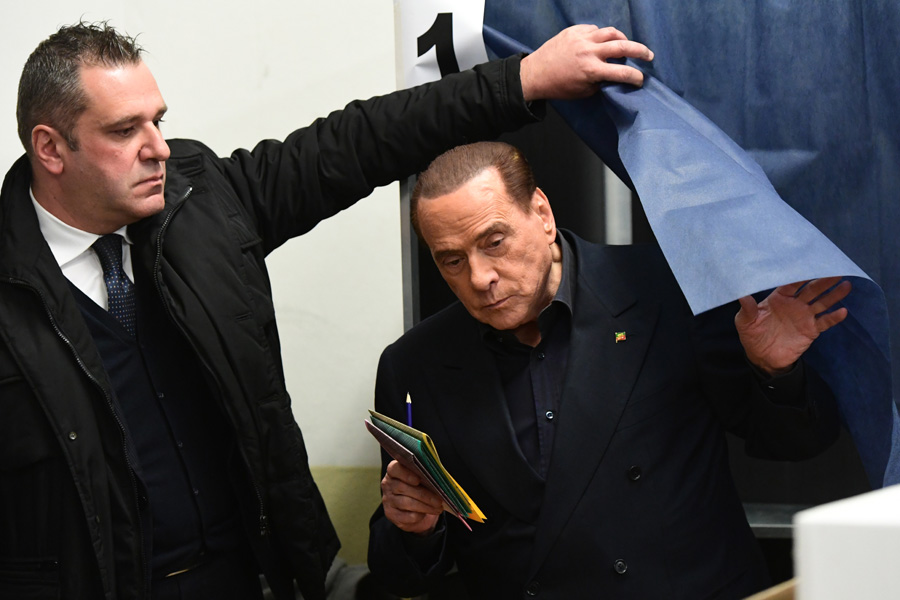Far-right and populists dominate vote in Italy
By JULIAN SHEA | China Daily | Updated: 2018-03-06 09:10

Italy looks set for an extended period of political instability after Sunday's general election resulted in a hung parliament, with anti-establishment and far-right groups claiming major victories at the expense of traditional parties.
With around three-quarters of votes counted, it looks highly likely that none of the three main political groupings will be able to govern on their own.
The largest bloc of votes belongs to an alliance of parties from the right, including former prime minister Silvio Berlusconi's Forza Italia party, but it looks almost certain that the far-right League, which campaigned on a strongly anti-immigrant platform, will poll more votes than Forza Italia.
It is thought the center-right coalition will poll around 37 percent, with the ruling center-left coalition led by Matteo Renzi's Democratic Party a distant third on 22 percent. The most successful individual party is likely to be the anti-establishment 5-Star Movement, on 31 percent.
The 5-Star party, formed by comedian and activist Beppe Grillo, is less than a decade old. Its popularity, largely fueled by public anger at economic hardship and corruption, has led officials to say the formation of a coalition government without it would be impossible.
"We will ... (talk) with all the parties about what this country needs," said senior 5-Star member Riccardo Fraccaro.
The economic chief of the euroskeptic League-like 5-Star, a newcomer to the political arena-has indicated there may be potential for an alliance of some kind.
The two parties once shared a similarly strong anti-euro position, with the League still in favor of leaving the single currency, but 5-Star says the moment for taking such a major step has passed.
Some political commentators, however, have questioned whether other parties could work with 5-Star. Its main electoral policy, which proved a huge vote-winner in the impoverished south, was a minimum monthly income of up to 780 euros ($960) for the poor.
Voting in the richer north was largely split between the League (18 percent) and Forza Italia (14 percent), with the center-left having enjoyed most of its success in central regions.
Parliament meets for the first time since the election on March 23, and President Sergio Mattarella is not expected to open formal talks on forming a new government until April.
The euro dipped in reaction, with former chief economist of the Italian treasury Lorenzo Codogno commenting: "Italy is far from having sorted its long-standing problems, and now it will have new ones. Be prepared for long and complex negotiations."
























